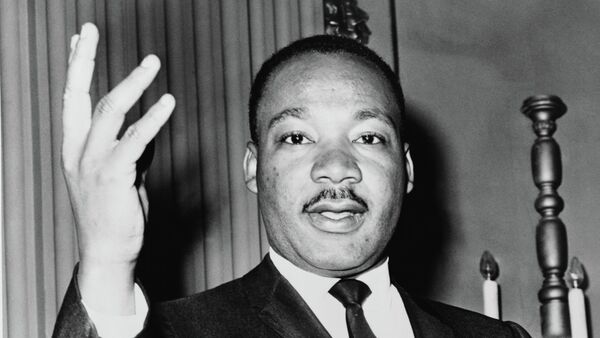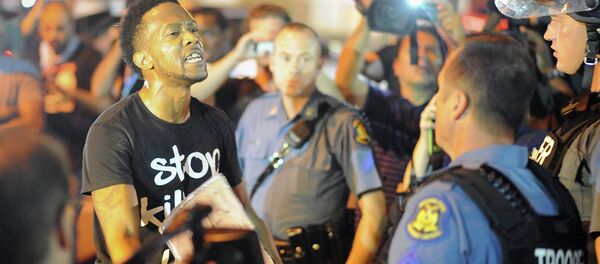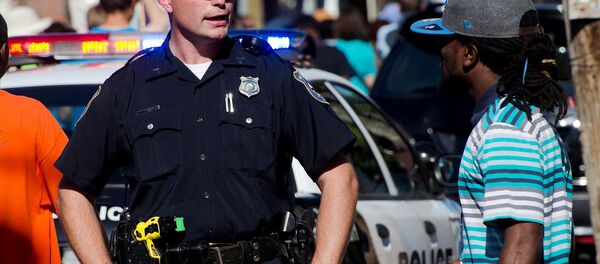"I have a dream that one day, down in Alabama, with its vicious racists, with its governor having his lips dripping with the words of 'interposition' and 'nullification' — one day right there in Alabama little black boys and black girls will be able to join hands with little white boys and white girls as sisters and brothers," said King in his speech.
Principles of non-violence, promoted by Indian independence leader Mahatma Gandhi, were top-priority in mid-Twentieth Century US civil rights movement protests led by King.
Happy Birthday to Martin Luther King, Jr. He would have been 87 today. #MLK pic.twitter.com/6CdSzMhiwZ
— Good Morning America (@GMA) January 15, 2016
Addressing some 200,000 people on the day of his famous speech in Washington, D.C., King used the term "police brutality" twice. Now, 53 years later, we still witness widespread use of unreasonable force by police.
Race remains a primary element of US police brutality, as evidenced by statistics from last year showing that 40 percent of fatal police shootings were of unarmed black men.
The legacy of King, endorsed by President Kennedy after the former's imprisonment in Birmingham, Alabama, remains paramount in the minds of Americans. But King's dream only throws a harsher light on current events.
Protesters across nation to demand higher wages, end to police brutality on MLK Day https://t.co/Dw9tDIhPPh pic.twitter.com/vTPdm9tC97
— RT America (@RT_America) January 19, 2016
Martin Luther King's "Letter From a Birmingham Jail" echoes through much of #Blacklivesmatter, a cultural movement seeking to end racially motivated violence toward African-Americans. In one of the more notable parts of King's speech he stated:
"I have almost reached the regrettable conclusion that the Negro's great stumbling block in his stride toward freedom is not the White Citizen's Counciler or the Ku Klux Klanner, but the white moderate, who is more devoted to ‘order' than to justice; who prefers a negative peace which is the absence of tension to a positive peace which is the presence of justice; who constantly says: ‘I agree with you in the goal you seek, but I cannot agree with your methods of direct action;' who paternalistically believes he can set the timetable for another man's freedom; who lives by a mythical concept of time and who constantly advises the Negro to wait for a ‘more convenient season.' Shallow understanding from people of good will is more frustrating than absolute misunderstanding from people of ill will."
Recent killings of churchgoers in Charleston, South Carolina, calls to memory four little girls killed in a Birmingham church bombed by white supremacists less than a month after Martin Luther King delivered his iconic speech.
The next year, Congress passed the 1964 Civil Rights Act, ending legal segregation in almost every walk of life, including in public facilities and accommodations. It was a great victory for the United States as a whole and for Dr. King in particular, who was awarded the Nobel Peace Prize the same year.
Bay Bridge, I-80 onramp blocked by separate groups in MLK Day demonstrations (via @KTVU) https://t.co/qEp5mYaQFH pic.twitter.com/gMkxa8b2Jo
— FOX & Friends (@foxandfriends) January 19, 2016
Race relations continue to be a hot-button issue for the 2016 presidential frontrunners. Democratic candidate Bernie Sanders marched with King and took part in actions of civil disobedience in support of equal rights. Sander's struggle for racial equality, and that of many others' in the United States, continues to this day.




